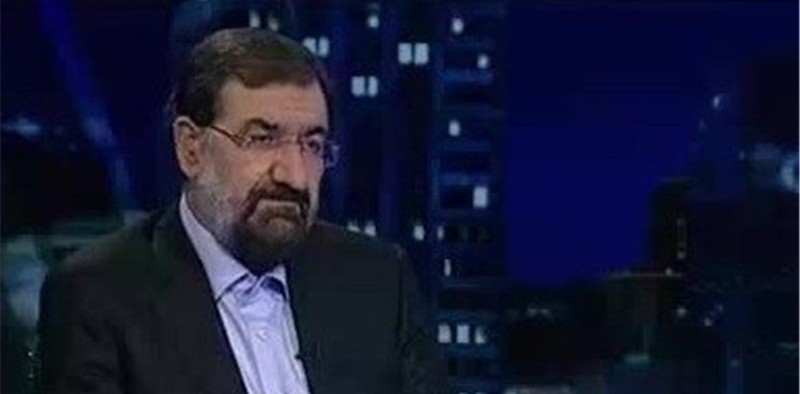PHOTO: Secretary of Expediency Council Mohsen Rezaei: “We will supervise Resistance Economy”
LATEST
- Journalist Razavi Faghih Freed from Prison After Hunger Strike
- Unemployment Rises to 11%; Women, Youth Most Affected
FRIDAY FEATURE
Who is Winning the “Great Balancing Game” Between Pakistan, India, Saudi Arabia, and Iran?
Following warnings by Iran’s Supreme Leader to the Rouhani Government, the prospect of a battle over control of economic policy rose on Thursday with a statement from a high-ranking official.
Mohsen Rezaei, the Secretary of the Expediency Council, said that the Council will “supervise the process of implementing Resistance Economy policies”.
In recent weeks, the Supreme Leader has warned that the July 2015 nuclear deal, the Joint Comprehensive Plan of Action, is being undermined by a US failure to return Iranian assets and lift sanctions on Tehran’s financial and banking sectors. The statements were a rebuke to President Rouhani, who exulted that the successful JCPOA would be followed by a “JCPOA 2” for economic recovery amid the removal of the American and European sanctions.
On March 21, in a speech marking Iranian New Year, Khamenei went farther with the indication that he could take away the Government’s responsibility for economic policy, a key element of Rouhani’s authority. Saying that there should be no “JCPOA 2, 3, or 4”, the Supreme Leader declared the Iranian year to be “Resistance Economy: Action and Implementation”.
Senior officials, including Rezaei, followed with criticisms of the Government for its misguided foreign policy of “engagement” and lack of diligence in pursuit of the “Resistance Economy”. Rouhani and his advisors tried to prevent any confrontation by assuring that they will implement the necessary policies.
However, the challenges have continued. On Tuesday, the commander of the Revolutionary Guards issued his first denunciation of the nuclear deal since November 2014. A day later, Khamenei told senior officials — including 1st Vice President Eshaq Jahangiri and Rezaei — that the Government should not assume US adherence to the nuclear agreement, and he repeated that all sectors should be strengthened for the Resistance Economy:
We cannot trust the Americans, and besides the Americans, some other Western governments are like that. Therefore we have to rely on our own capabilities and the American officials’ positions and performance endorse such a view.
Rezaei’s statement may portend a battle not only with the Government, but within the Council: its head is former President Hashemi Rafsanjani, a close ally of Rouhani. Hardliners have accused Rafsanjani of supporting foreign-led “sedition” of the Islamic Republic, and the tension has not been abetted with the unexpected centrist-reformist success in Parliamentary elections in February.
Rouhani Upholds Nuclear Deal
On Thursday, President Rouhani responded by praising Iranian nuclear negotiators for “the most significant day for diplomacy in the past 100 years”. He insisted:
This is a year when the world and international organizations have recognized the right of the Iranian nation for the nuclear technology….We have proved the world in the past year that ‘soft power’ can be more effective than hard power.
Rouhani still has to submit the Government’s 2016-17 budget to Parliament for approval. The plans were supposed to be tabled for consideration in December, but they were delayed by the implementation of the nuclear deal and by February 26 elections.
The Government also has to seek a mandate for its 2016-2020 National Development Plan.
Journalist Razavi Faghih Freed from Prison After Hunger Strike
ournalist Saeed Razavi Faghih has been released from Evin Prison following a two-week hunger strike, according to the opposition website Kalemeh.
The site said Razavi Faghih, who suffers from serious heart complications, was freed on Wednesday. Last Sunday, he reportedly emphasized his protest over prison conditions by sewing his lips together.
Razavi Faghih has been detained on a number of occasions for his journalism. His latest arrest was on March 6, 2014, after which he was given a one-year prison sentence for “security-based crimes”.
At the end of the term, Razavi Faghih was kept in prison, and new charges were Filed against him. The court sentenced him to three-and-a-half years on charges of “insulting the Supreme Leader and the Assembly of Experts” and “propaganda against the regime” for a speech he gave in 2013.
Unemployment Rises to 11%; Women, Youth Most Affected
Iran’s unemployment rate rose to 11% from March 2015 to March 2016, a 0.4% increase over the previous.
The rate for men was 9.3%, but for women it was 19.4%.
Youth unemployment was 26.1%, with 22.3% of men between 15-24 out of work and 42.8% of women in the same age group.
President Hassan Rohani has pledged to bring both inflation and unemployment down to single digits.

